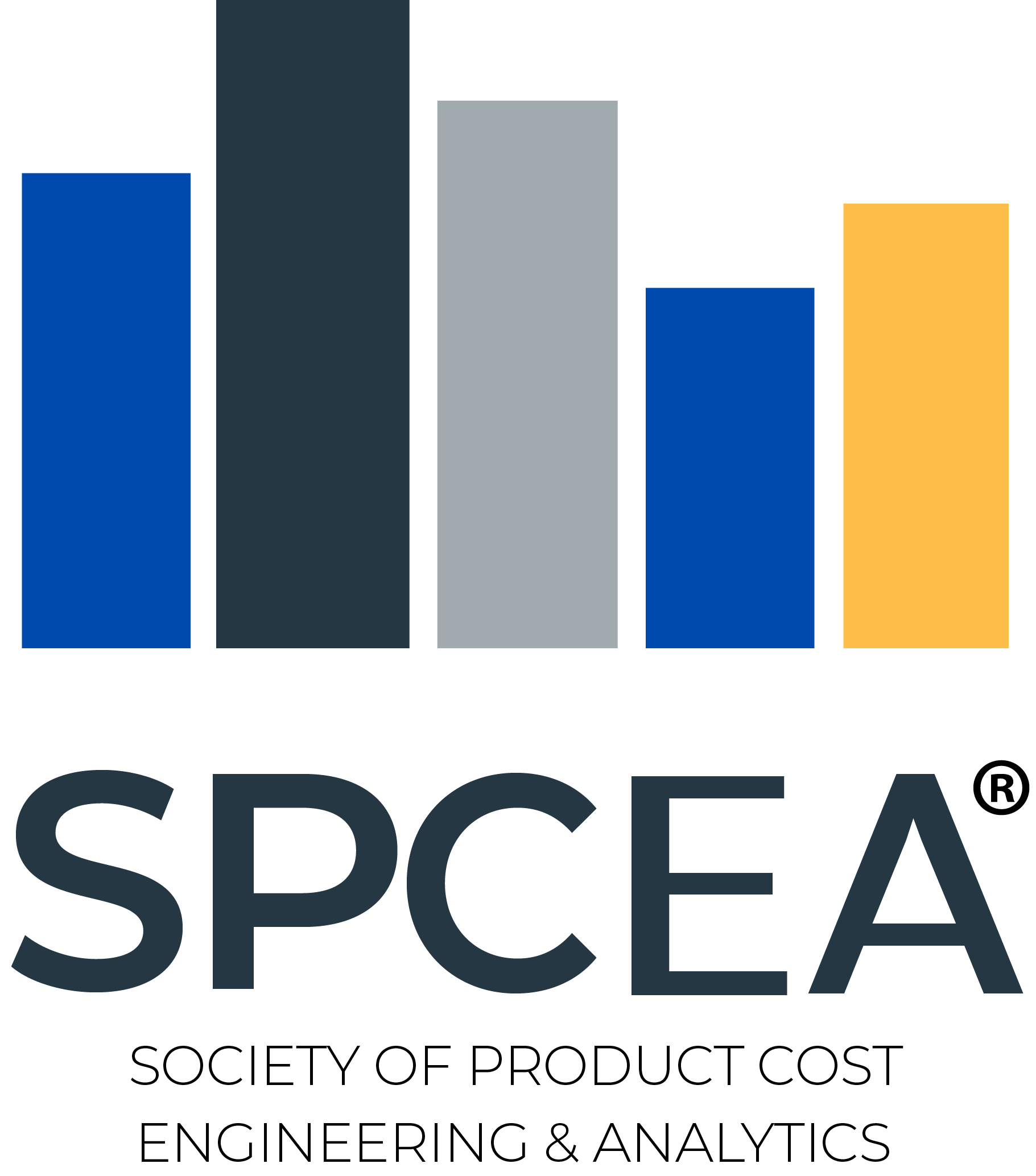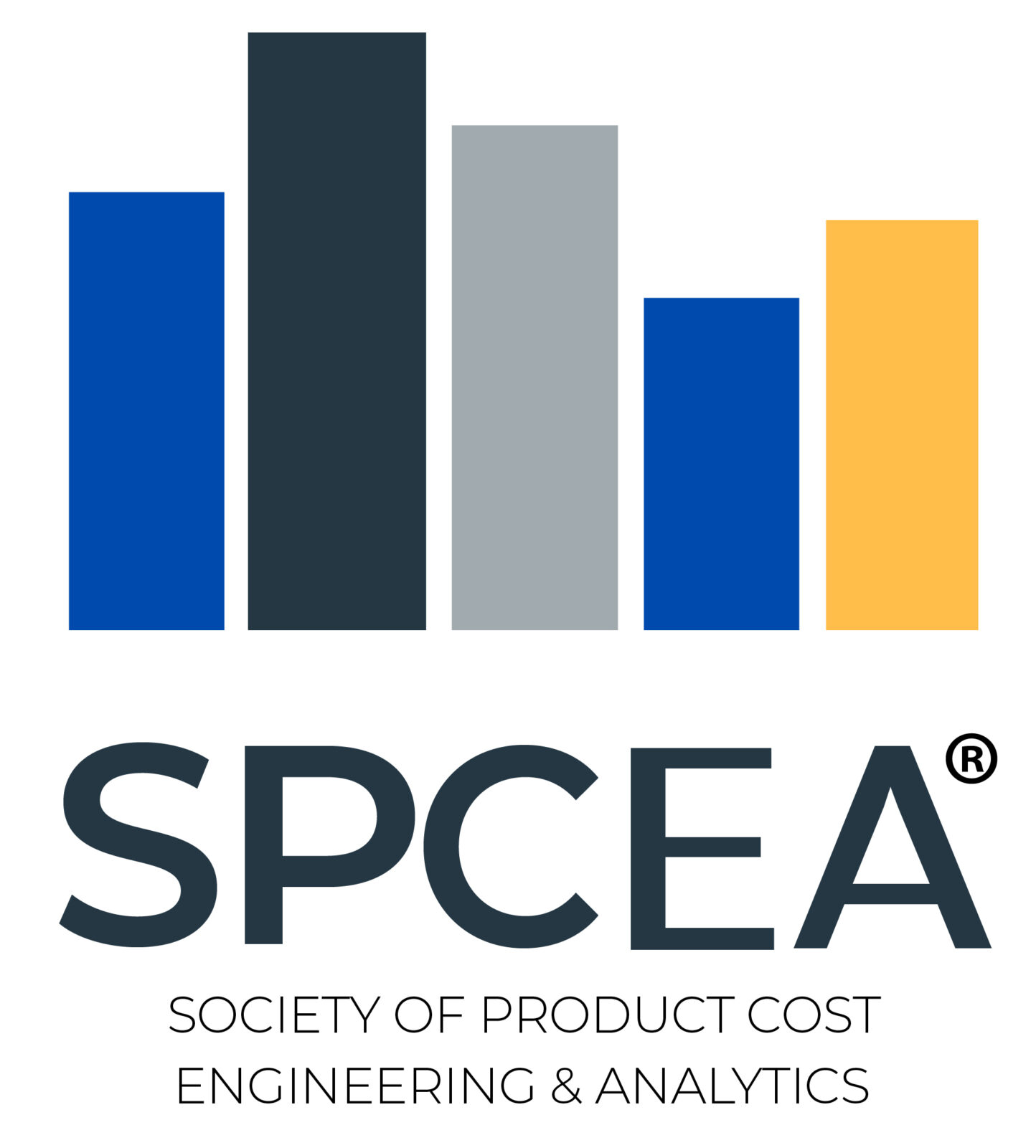AGENDA Day 1 – November 9, 2022
7:40-8:00 am EST
Login and registration
ALL
8:00-8:15 am EST
Kickoff by President of SPCEA
Chris Domanski CPCE, President – SPCEA, USA
Chris Domanski, President of SPCEA and Director of Cost Optimization at Forvia, will kick off the conference and will provide an introduction to SPCEA’s training and certification opportunities and how SPCEA is working to raise awareness and knowledge of the cost engineering profession in the manufacturing of products.
8:15 – 8:55 am EST
Navigating market uncertainties through cost engineering
Umesh Goel and Roman Belotserkovskiy, Partners at McKinsey, USA
Listen to Umesh Goel and Roman Belotserkovskiy, Partners at McKinsey kick off the conference with their thoughts on how cost engineering capabilities play a central role in a holistic response to inflation, volatility and market disruption.
8:55 – 9:35 am EST
Setting up an enterprise-wide inflation offset and negotiation process
Ed Pretzel, Founder & President, Collaborative Supply Chains, USA
The session will review the common inflation offset opportunities and the key strategies for effective negotiations. Also, important is how to set up an enterprise-wide standard process in supply chain management organizations to manage hundreds of the most critical price increases.
9:35 – 10:35 am EST
Market Data as the solution for handling complexity & uncertainty in times of COVID & global conflicts
Frank Weinert, Managing Director, costdata GmbH, Germany
Tobias Uding, Head of Sales, costdata GmbH, Germany
Understanding the situation, solving the issues and getting the best results is only possible for these players who have the right data. As we see now for nearly three years, globals crisis seems to be an continuous situation, which effected first material costs, then freight & supply chain costs, since end of 2021 energy costs and is shocking now markets by highest inflation rates for decades. costdata GmbH, leading and proven market data provider from Germany, will give insights on this topic.
10:15 – 10:40 am EST
Networking session
All
10:40 – 11:20 am EST
Key factors in effective cost modeling at manufacturers
Douglas T. Hicks, CPA
Cost Measurement and Management Consultant
Author of “Activity-Based Costing: Making it Work for Small and Mid-Sized Companies” and “I May Be Wrong, But I Doubt It: How Accounting Information Undermines Profitability” USA
There are five key factors that determine whether or not a manufacturer’s cost model reflects economic reality. These are: its fundamental structure, its ability to predict costs, its use of causality in both predicting and assigning costs, its measurement of capacity, and its incorporation of economic, not financial, measurements of cost. This session will discuss each of these factors and their importance in ensuring the accuracy of cost information used to support business decisions.
11:20 – 12:00 am EST
How to be cost efficient in Agile
Valorie Hendrix, Owner and Lead Consultant, Dynamic Empire Consulting. USA
Agile is well known for creating throughput within a project by using sprints. But what Agile does not focus on is the relationship of the features of cost analysis in comparison to what the customer is willing to pay. In this presentation, Valorie will discuss what and how to make Agile a more cost-efficient driven method without losing the throughput benefits.
Valorie has spend 10 years in Manufacturing where she was an accountant, Value Engineer, quality engineer, and Lean Six Sigma. She is currently and independent business consultant helping organizations with throughput, quality, and Value Analysis/ Value Engineering. Valorie is also author of Streamlining Function and Value: How to Reduce Cost and Deliver Exceptional Value.
2022 Virtual Conference Agenda
AGENDA Day 2 – November 10, 2022
7:40 – 8:00 am EST
Login and registration
All
8:00 – 8:15am EST
Kickoff and AWARD announcement
Chris Domanski, CPCE, President – SPCEA, USA
Contribution to cost engineering field in 2022.
8:15 – 8:55 am EST
Career Management 101 for cost engineers: Preparing for the future
Eric Gierahn, Sr. Manager – Product Program Cost Optimization, General Motors Corporation, USA
Jeff Miller, Semiconductor Technology Cost Lead, General Motors Corporation, USA
Cost engineering roles create skills and expertise that are in great demand by other organizations within a company. These skills are especially important for those who intend to pursue careers in the engineering, procurement, and/or quality professions, as they aren’t necessarily predetermined by your formal education. Career planning is essential to prepare for future roles, to avoid technical obsolescence, and to leverage your cost engineering experience for career advancement. With these goals in mind, this presentation will provide practical recommendations for planning your career by providing suggestions on how to gain recognition from your process partners and recommendations on how to be seen as a valued resource by senior leadership.
8:55 – 9:35 am EST
Emission assessment as integrated part of cost and value engineering
Severin Heimrath, CEO / Managing Director, AWS Systemtechnik GmbH, Germany
Over the last years, global warming and climatic change have more and more become obvious. First countermeasures like green zones in cities and plastic bag ban have entered our lives. If you, as cost and value engineer, want to be prepared for the future, you should take this new view into consideration in your work in the development process of products or in the review of already existing products. Every production step, every gram of material and all logistic connections no matter where their position in the supply chain is, is responsible for the emission of CO2e. We will show you a way to assess the emissions as part of a cost analysis and see if emissions and cost optimization can go hand in hand.
9:35 – 10:15 am EST
Cost optimization as a company-wide system
Craig Theisen, author of ”C-O-S-T”, former VP and GM at Johnson Controls, USA
Achieving true cost optimization takes a company-wide system where employees constantly focus on reducing product costs and validate new cost benchmarks that product development teams can incorporate into future products. These new and validated benchmarks must flow to the product development teams for inclusion in future product designs, manufacturing methods, and value streams. In this session, Craig Theisen, who led the development of C-O-S-T, will discuss the system that motivates the entire company in optimizing product costs during product development and thereby maximizes product lifecycle profits.
10:15 – 10:40 am EST
Networking session
All
10:40 – 11:20 am EST
Cost as target, performances as must! The approach of Körber-Tissue
Marco Salvini, Global Costing Manager, Körber Tissue, Italy
Körber is a leading international technology group with technical cutting edge solutions and a strong focus on cost leadership. Developing customer driven products according to a cost/effectiveness view is mandatory at Körber. In order
to consolidate its leadership position, an internal process to predict and guarantee the Company’s marginality has been developed. Due to the global organization of Körber-Tissue, it had to refine tools for localized cost estimation as concrete decision maker for strategic decision. This session will guide you through the activities of costing and estimating at Körber-Tissue. Starting from the development process and estimation of a single component to the consolidation of multilocation global projects.
11:15 – 12:00 EST
OE Cost Model Types – Why and how Rolls-Royce Aerospace
standardized the model types for cost engineering globally
Carsten Voss, Cost Capability Engineering Manager, Rolls-Royce, Germany
Over the last decade, Rolls-Royce delivered an unprecedented amount of NPI programs in parallel. This activity was supported by a large intake of cost engineers, which ultimately delivered a large amount of product cost estimates. To ensure quality, re-use of created cost models and to avoid duplication of work, it became apparent that engineering standardization in the cost team was missing. This sharing of the Rolls-Royce journey is aimed to help other cost engineering departments recognize similar potential and encourage developing a formal, structured and document understanding of the subject.

